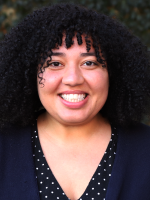Detroit Mayor Mike Duggan said Monday that if a controversial gunshot detection system called ShotSpotter had been implemented in the police precinct where four people were shot Sunday, there’s a good chance officers would have stopped the shooter sooner.
Detroit officials alleged that a 19-year-old man with no criminal history shot four people in the 12th precinct unprovoked, killing three of them.
ShotSpotter is active in two Detroit precincts, but some officials have urged using $7 million in federal pandemic relief funding to spread the technology across the city.
"I know from the time I spent with the officers yesterday, they're going to be haunted for a long time," Duggan said. "They very likely could have prevented two and probably three tragedies had they had an immediate notice."
Critics have argued the technology puts more surveillance on communities of color and that it often doesn't work.
"It is disingenuous for Mayor Duggan to claim that ShotSpotter would aid in helping the police catch the perpetrators of violence when in reality, this technology has and will continue to lead to more police terror on Black, Brown and indigenous community members," said Branden Snyder, co-executive of the nonprofit Detroit Action.
"Giving the police more incentive to monitor historically impacted communities is inherently violent to the people of Detroit," Snyder said in an emailed statement.
Duggan said that's not true.
"There are are an element of defund-the-police groups that intentionally put out false information. ShotSpotter has no surveillance. ShotSpotter has no cameras. All ShotSpotter does is say this is the location of a gunfire with precision so the police can respond immediately," said Duggan.
During a Monday press conference, Detroit Police Chief James White explained how the city tried to inform people about the shootings.
He said the police focused on notifying residents through social media like Facebook, Twitter, and Next Door, as well as news reports. White also said registered users received a text through the city's Detroit 365 alerts app. Residents need to register to get the alerts.
City communications officials could not confirm Monday how many residents have signed up for Detroit Alert 365 or how many residents received alerts the day of the shooting.
Police officials said by the time the department began notifying the public, it was mainly to help find the suspect, and there were no longer active shootings.
Bishop Daryl Harris with Ceasefire Detroit said this kind of violence disrupts the entire community. During his Sunday worship service, he said, he informed his congregation of the still-wanted shooter.
"Many of our members were distraught as they ran out of the sanctuary to try to call their loved ones and their families in that area to kind of warn them what was going on. And you could just feel the panic," he said.
Several hours later, after broadcasting the image of the suspect, a tip came in with the identity of the suspect, police said.
Officers got a search warrant and arrested the man without incident, authorities said. A firearm was found at the scene that matched the bullets found at the scene.
One of the women who was shot has not yet been identified. Police asked people to come forward if they think they might know her.




